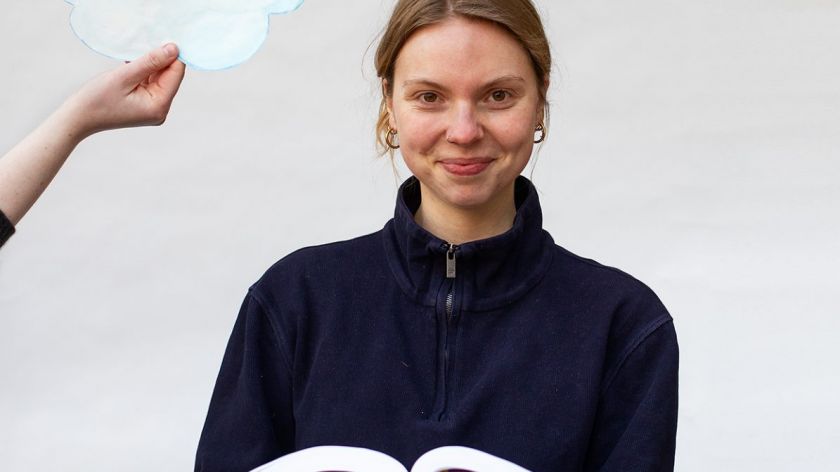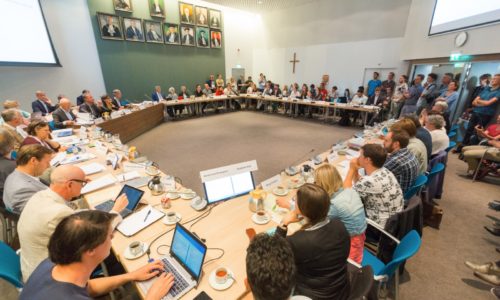The geese gang
-
 Jara Majerus, photo: Dick van Aalst.
Jara Majerus, photo: Dick van Aalst.
Life can get quite complicated - and sometimes, you need help from the world's greatest philosophers to figure it out. In her blog, Jara Majerus looks at life through the philosophical monocle, employing the help of some of history's brightest thinkers. Today: bicycles, geese – and why animals matter.
Recently, I did something that young people are not supposed to do anymore: I listened to the radio. More specifically, I listened to a local Dutch radio station, one of the kinds that play a nice mix of old classics and the occasional German schlager. Why exactly I tuned into this radio station, I cannot tell you. But what I can tell you is that it was highly interesting – grace to the host. Especially because a sincere concern of his was the following: the geese gang.
The radio host was deeply troubled by geese, or, more specifically, by Canadian geese. He was affronted by their serious disrespect towards cyclists: apparently, the geese did not go out of the way but crossed the street as they pleased without any consideration for the humans around them. In other words: they did not comply with the basic understanding that humans are the centre of the universe.
Now, don’t get me wrong, I do empathize with the radio host. I myself tend to encounter geese quite often in my neighbourhood in Nijmegen Lent and get annoyed over geese gangs claiming cycling lanes too. But what does that tell us about our society?
‘If we do not believe that animals are worthless, why treat them as if they were?’
Many philosophers made strict distinctions between animals and humans and even argued that only humans have intrinsic value and that animals’ needs do not matter. We often act according to this idea, for example by eating animals that were bred in factory farming.
And yet, the environmental philosopher Allen Thompson argues in his thought experiment ‘Last Man‘ that most of us do not really believe that only humans matter: imagine that a catastrophe has left one last human alive. This human is about to die and the last thing they want to do is push a button that would destroy the rest of life on earth.
This decision would not harm any human interest, only other animals. So, theoretically, the Last Man’s action would be morally correct. ‘But there is a widespread and strong moral intuition that the Last Man would act wrongly’, writes Thompson. So, if we do not believe that animals are worthless, why treat them as if they were?
The geese matter, just like we do. So, the next time that we cycle past a geese gang and anger creeps in, we should remind ourselves that we would not push the button. Ringing the bell is enough.
Read Jara Majerus's blogs here


